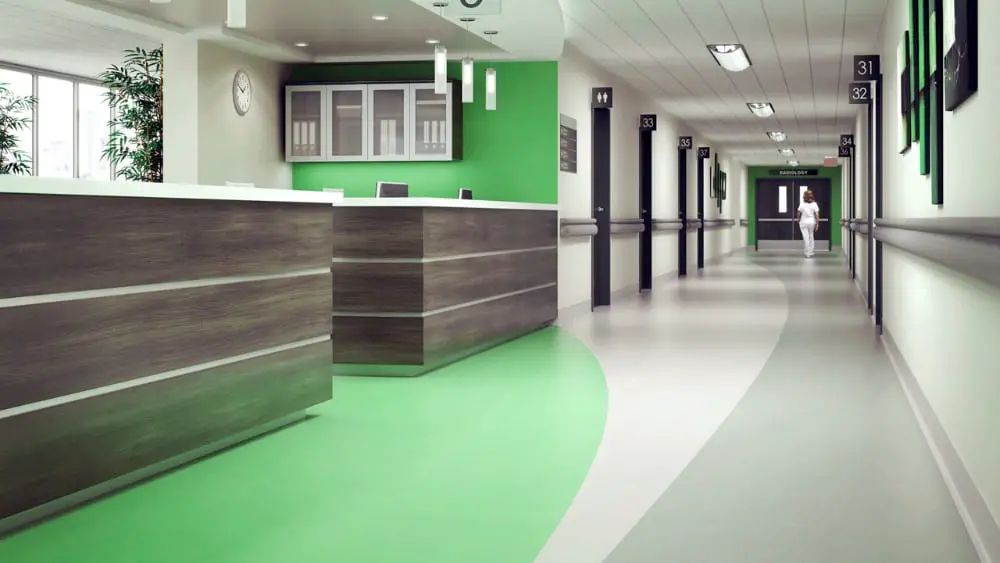Choices
When choosing a floor coating for industrial or commercial applications, two popular options often come into consideration: which is better, epoxy or polyurethane cement coatings? Both polyurethane cement and epoxy floor coatings offer unique benefits and performance characteristics.
Polyurethane Cement Coatings:
Polyurethane cement coatings are known for their exceptional durability and chemical resistance. Here are some notable features of polyurethane cement:
- Superior Durability: Polyurethane cement coatings are highly durable and withstand heavy foot traffic, impacts, and abrasions. They are designed to handle harsh environments such as food processing facilities, breweries, and manufacturing plants.
- Chemical Resistance: These coatings exhibit excellent resistance to a wide range of chemicals, including acids, alkalis, solvents, and oils. They provide a protective barrier against chemical spills and stains, ensuring the longevity of the flooring.
- Thermal Shock Resistance: Polyurethane cement coatings have high thermal shock resistance, which can withstand rapid temperature changes without cracking or delamination. This makes them suitable for environments with extreme temperature fluctuations.
- Fast Installation and Curing: Polyurethane cement coatings have a relatively fast installation and curing time, allowing minimal downtime during application. This is beneficial for businesses that require quick turnaround times.
Epoxy Floor Coatings:
Epoxy floor coatings are widely used and appreciated for their versatility and aesthetic appeal. Here are the key characteristics of epoxy coatings:
- Excellent Bonding to Concrete: Epoxy coatings strongly bond with properly prepared concrete surfaces. This ensures a solid foundation for the coating system, enhancing its overall durability.
- High Chemical Resistance: While not as chemically resistant as polyurethane cement, epoxy coatings still offer good resistance to a variety of chemicals, including mild acids, oils, and solvents. They are suitable for applications where moderate chemical exposure is expected.
- Aesthetic Options: Epoxy coatings are available in a wide range of colours and finishes, allowing for customisation and the creation of visually appealing flooring designs. They can be applied with decorative additives, such as flakes or quartz, to enhance the appearance.
- Cost-Effective Solution: Epoxy coatings are generally more cost-friendly than polyurethane cement coatings. They provide a reliable and durable flooring solution at a relatively lower price point.
Choosing the Right Flooring Solution:
Determining whether polyurethane cement or epoxy floor coatings are better depends on your specific requirements and the intended application of the flooring. Here are some considerations to help guide your decision:
- Environment: If your facility is exposed to aggressive chemicals or requires resistance to thermal shock, polyurethane cement coatings are the preferred choice.
- Heavy-Duty Use: For areas with heavy machinery, high traffic, or potential impact hazards, polyurethane cement coatings offer superior durability and impact resistance.
- Aesthetic Appeal: If visual appeal is a priority, epoxy coatings provide a broader range of colours and finishes to create a customised and attractive flooring solution.
- Budget: If cost is a significant factor, epoxy coatings are generally more cost-effective upfront, providing a durable and functional flooring option. However, it is undisputed that PU cement will last longer in most situations so a long-term budget should be considered.
Which is better epoxy or polyurethane cement?
There is no one-size-fits-all answer in the debate between polyurethane cement and epoxy floor coatings. Both options have their unique advantages and are suited for different applications. Consider the specific needs of your facility, such as chemical exposure, durability requirements, and aesthetic preferences, to make an informed decision. Check out our many blog posts as they cover topics relevant to this discussion, or consult with a Diamond Grind expert who will provide valuable insights tailored to your specific circumstances.

✅ Let's Talk — DiamondGrind
100% free consultation — no commitment required.
